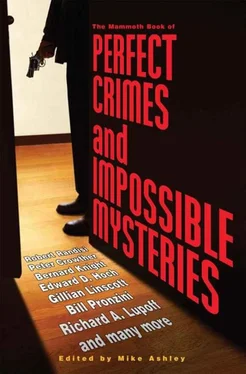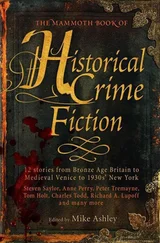“Did you hear the news?” my nurse April asked that morning. “Rusty Wagner is coming here for the war-bond drive.”
“We don’t go to many movies,” I admitted, though the town boasted a pretty good theater. “I guess I’ve seen him once or twice.”
“I’m going to help out on the drive,” she said. April’s husband Andre was away in the service and I could understand her urge to get involved.
“That’s good. I’ll come and buy a bond from you,” I promised.
That night at home I mentioned it to my wife Annabel, who showed a bit more excitement than I had. “That’s great news, Sam! Something’s finally happening in this town.”
I smiled at her remark. “A lot of people think too much happens here already. Our murder rate-”
“I wish you wouldn’t blame yourself whenever somebody gets killed in Northmont. I’m sure there were murders here before you ever came to town. I’ll have to ask Sheriff Lens when he and his wife come to dinner.”
The sheriff had been elected to his first term in 1918, just days before the armistice that ended the war. I hadn’t moved to town and set up my practice until a few years later, in January of ’22, and for some reason we’d never really talked much about Northmont’s past crimes.
We dined with Sheriff Lens and his wife Vera every couple of months, and it was their turn to come to our house two nights later. While Vera helped Annabel with dinner in the kitchen I engaged the sheriff in conversation. “Annabel and I were talking the other night about Northmont’s crime rate. How was it before I came here in ’twenty-two? Did you have just as many murders?”
Sheriff Lens chuckled, resting his hand on the glass of sherry my wife had provided. “Can’t say that I remember any at all before you came to town, Doc. Guess you brought ’em with you.” He took a sip from the glass and added, “There was the fire over at the Black Cloister, of course, but no one ever suggested that was murder.”
I’d driven past the burnt-out building several times during the past twenty years, wondering why the county didn’t just tear it down and sell the land at auction. “Exactly what happened there?” I asked.
“Well, it was in the late summer of ’twenty-one. The place had been built late last century as a sort of farming commune for disenchanted monks and other religious men who’d left their various orders but weren’t ready to return to the secular world. Occasionally they took in one or two juvenile offenders if the courts asked them to, on the theory that a hard day’s work might set them straight. Nobody paid much attention to them out there, except about once a month when a couple of them came into town for supplies. They called it the Black Cloister, named for the Augustinian monastery in Germany where Martin Luther lived. After the Reformation the monks moved out but Luther continued to live there, offering shelter to former monks and travelers. Upon his marriage in fifteen twenty-five the building was given to him as a wedding gift.”
“You know a good deal about it, Sheriff.”
“Well, Vera’s a Lutheran even though we were married by a Baptist minister. We got talking about the Black Cloister one night and she filled me in on all that history.”
“I heard my name mentioned,” Vera Lens said as she came in to join us. “Dinner will be ready in three minutes.”
“Doc was just wondering about the Black Cloister,” the sheriff explained.
“Funny you should mention that, Sam. We’re putting together an antique auction for the war-bond rally and someone donated the ornate oak front door from the Black Cloister. You can see it along with the other antiques down at the town hall.”
“Maybe I’ll take a look. When is this all going to happen?”
“Next Tuesday, the twentieth. That’s the day after the Boston rally. They’re tying it in with Patriots’ Day and the Boston Marathon.” Easter Sunday that year was not until April twenty-fifth, the latest it could be.
We took our seats at the table as Annabel came in with our salads. “I was just talking to Vera about the rally,” she told me. “I told her I wanted to help out, too.”
“A lot of people are. April at my office said she’d help. There’s nothing like a movie star to brighten things up.”
“Rusty Wagner isn’t exactly a heartthrob,” Vera remarked, plunging her fork into the salad. “Sometimes his face looks like it went through a meat grinder.”
“He makes a perfect villain, though,” Annabel said. “I saw a couple of his films before we were married.” Turning to me, she said, “Sam, we have to start going to the movies more.”
Somehow the conversation never did get back to the fire at the Black Cloister. It wasn’t until Sunday afternoon, two days before the scheduled rally, when I accompanied Annabel to the town hall and stood before the fire-scorched door, that I remembered the burned building. The thick oak door was indeed a thing of beauty, leaning against the wall. Its front showed a bas-relief of a hooded monk kneeling in prayer, and this is what would have greeted visitors to the Cloister.
“You can see the door was badly scorched in the fire,” Vera said as she came up to join us. We were in the ornate lobby of the town hall, where a score of items of all shapes and sizes had been assembled for the auction.
I ran my fingers over the bas-relief, admiring the carving. “Looks as if there are a few little wormholes in it, though,” Annabel remarked.
There were indeed, toward the sides and top of the door. I pulled it away from the wall, but the back was smooth and unmarked, without a trace of scorching. “What was the story about this fire?” I asked Vera. “It was before I moved here.”
“I was pretty young then myself, but I remember the Cloister as some sort of religious community. There was a fire and one young man died. After that the rest of the community just scattered.”
“Who owns the property?”
“I have no idea. Felix Pond at the hardware store donated the door. He said it had been in the family for years, but I don’t know that they ever owned the place.”
“How does this charity auction sell war bonds?” Annabel asked.
Vera Lens explained. “People bid by purchasing the bonds, so it’s not really costing them anything. They get their money back when the bonds are redeemed. The items are all donated and I don’t imagine they have any great value. But something like this door could be cleaned up and painted and put to good use. Some church might even like it.”
I ran my fingers over the wood once more, again impressed by the workmanship. “I wonder who carved this. Was it someone locally, or perhaps one of the residents at the Black Cloister?”
“It’s possible Mayor Bensmith might know.”
“I think I’ll ask him.”
Cyril Bensmith had a dairy farm on the North Road. His tall, gaunt frame reminded some of Abraham Lincoln, though he’d never thought of entering politics until his wife died a few years earlier. They had no children, and perhaps in search of a new beginning he’d run for mayor and been elected handily. He still worked his farm every day. Being mayor of Northmont was not a time-consuming occupation.
He had just arrived at the town hall and was greeting people with a handshake when I went up to him. “How are you, Sam? Good to see you here. I think the rally on Tuesday’s going to be a big success.”
“It should be,” I agreed, “especially with Rusty Wagner’s appearance.”
“Rusty’s an old friend. I haven’t seen him in years, but we’ve stayed in touch.”
“I was admiring that door from the old Cloister,” I explained, gesturing toward it. “Know anything about it?”
“No more than you. Felix Pond at the hardware store donated it.”
Читать дальше











